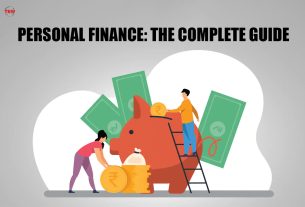You must realize that honorary degrees are given generally to people whose SAT scores were too low to get them into schools the regular way. As a matter of fact, it was my SAT scores that led me into my present vocation in life, comedy. – Neil Simon
Earlier this week, we reached a milestone. For the final time, we attended our child’s graduation from elementary school. As is customary in Israeli graduations, it took a long time and was highlighted by the “play.”
While it was great seeing all the kids take part in the production, I must admit that I prefer the formality of graduations abroad, as well as the shorter length of the celebration. It just sort of goes on and on. Here, the girls made their own caps, sort of sad.
I like tradition. There is something more final – the end of an era – seeing the graduates walking down the aisle in their caps and gowns to the song of “Pomp and Circumstance.” In fact, pomp means a show of magnificence or splendor. Let’s just say that while in these Israeli graduation “shows,” the kids work hard, but The Phantom of the Opera it ain’t.
That being said, I have certainly had my fill of nostalgia. My Facebook feed has been full of pictures of my cousins’ and friends’ children’s graduations. Chalk it up to culture differences, I guess. My Sabra children laugh when I show them pictures of graduates wearing their caps and gowns.
With three children out of high school and no one left in elementary school, for me, this season brings mixed emotions. On the one hand, it means all of our children are getting older and getting closer to heading out to make their own way in the world, which is exciting. On the other hand, it means that all of our children are getting older and getting closer to heading out to make their own way in the world, which is sad in some respects.
Hold the Kleenex; don’t worry. That is about as emotional as I ever get. So what does this have to do with financial security? The answer is simple: Investors need to focus on the long term. As I have written previously, it’s like when raising kids, we may be nervous in the short term, and not overjoyed when a child brings home a 50 on some history test. But if we take a slightly longer view, we realize that regardless of whether the child gets the 50 or knows the dance moves at the year-end dance recital, it’s pretty irrelevant to adulthood. (My kids would flip out if they heard me say that, but I am quite confident that they don’t read my column.)
Don’t get caught up in short-term market movements
Investing is similar. Don’t get caught up in short-term market movements and get scared if the market drops 10%. I may sound like a broken record, but markets have corrections frequently (like two of more than 20% in the last three years), and an investor who doesn’t get all nervous and panic will make money and build wealth over time.
Mark Hulbert writes: “If you think you will know it when this bull market finally comes to an end, you are kidding yourself. The vast majority of professional advisers who try to get in and out of the stock market at the right time end up doing worse than those who simply buy and hold through bull and bear markets alike. Even those few who beat a buy-and-hold strategy during one period rarely beat it in the next one.”
If the pros stink at timing the market, why would individual investors think they can do better? I recently received calls from clients worried about a stock-market crash. They keep asking about worsening US/China relations, higher interest rates, an impending global recession and my favorite: that they heard from a friend at work that the market is going to crash and want to know what to do with their money.
My answer is: No. 1, apart from a global pandemic that no one had a clue at the beginning how dangerous it would be, markets rarely crash, and I wouldn’t be too worried about it; and No. 2, if they are worried about it, it means they have an incorrect asset allocation and that they have too much exposure to the stock market. If you can’t afford short-term losses in your stock portfolio, you need a more conservative approach.
Speak with your financial adviser to make sure your portfolio is in line with your short- and long-term goals and needs, and make sure that it is allocated correctly to achieve those goals.
Mazel tov to all the graduates!
The information contained in this article reflects the opinion of the author and not necessarily the opinion of Portfolio Resources Group, Inc. or its affiliates.
Aaron Katsman is author of the book Retirement GPS: How to Navigate Your Way to A Secure Financial Future with Global Investing and is a licensed financial professional both in the United States and Israel. He helps people who open investment accounts in the US.



